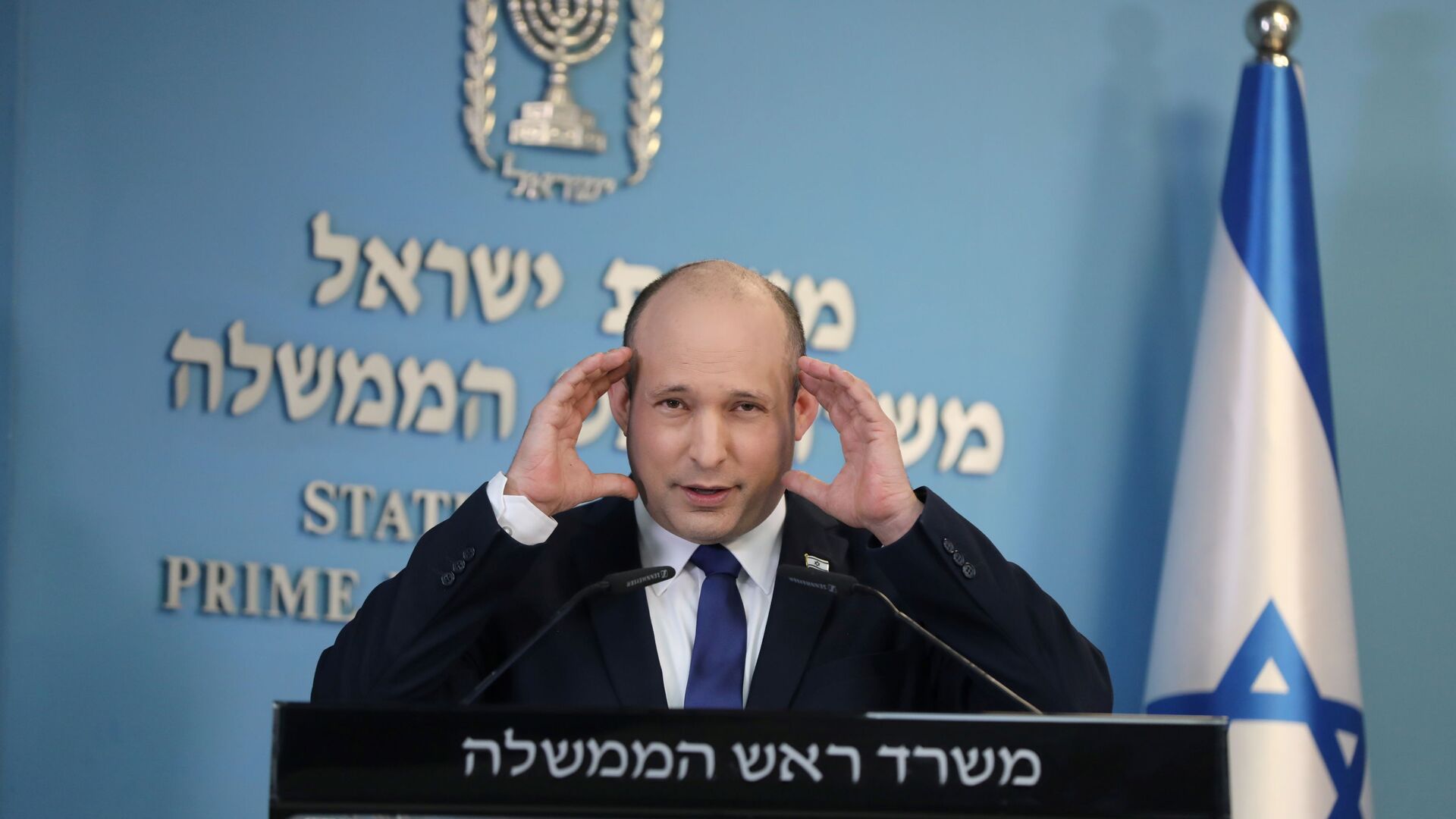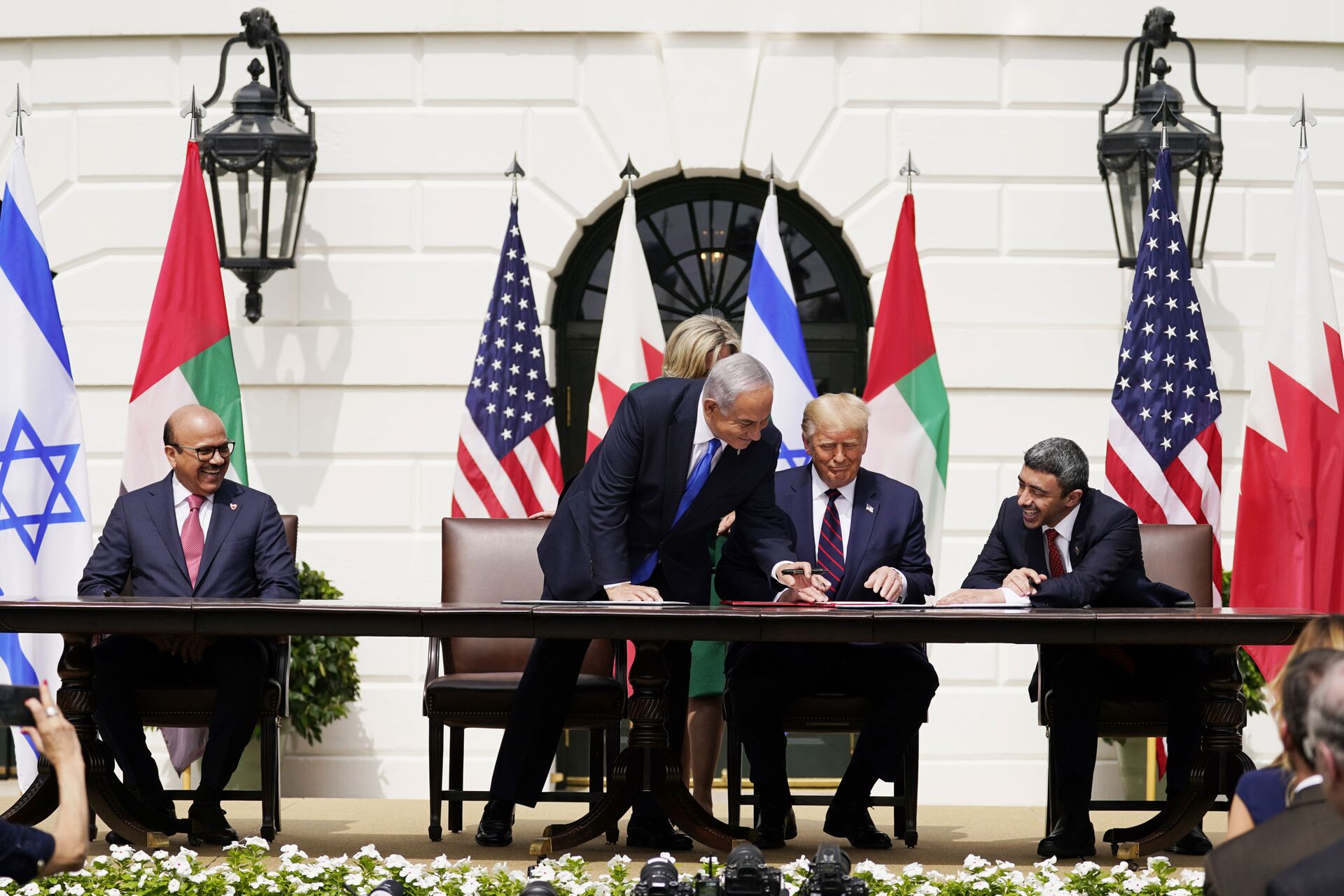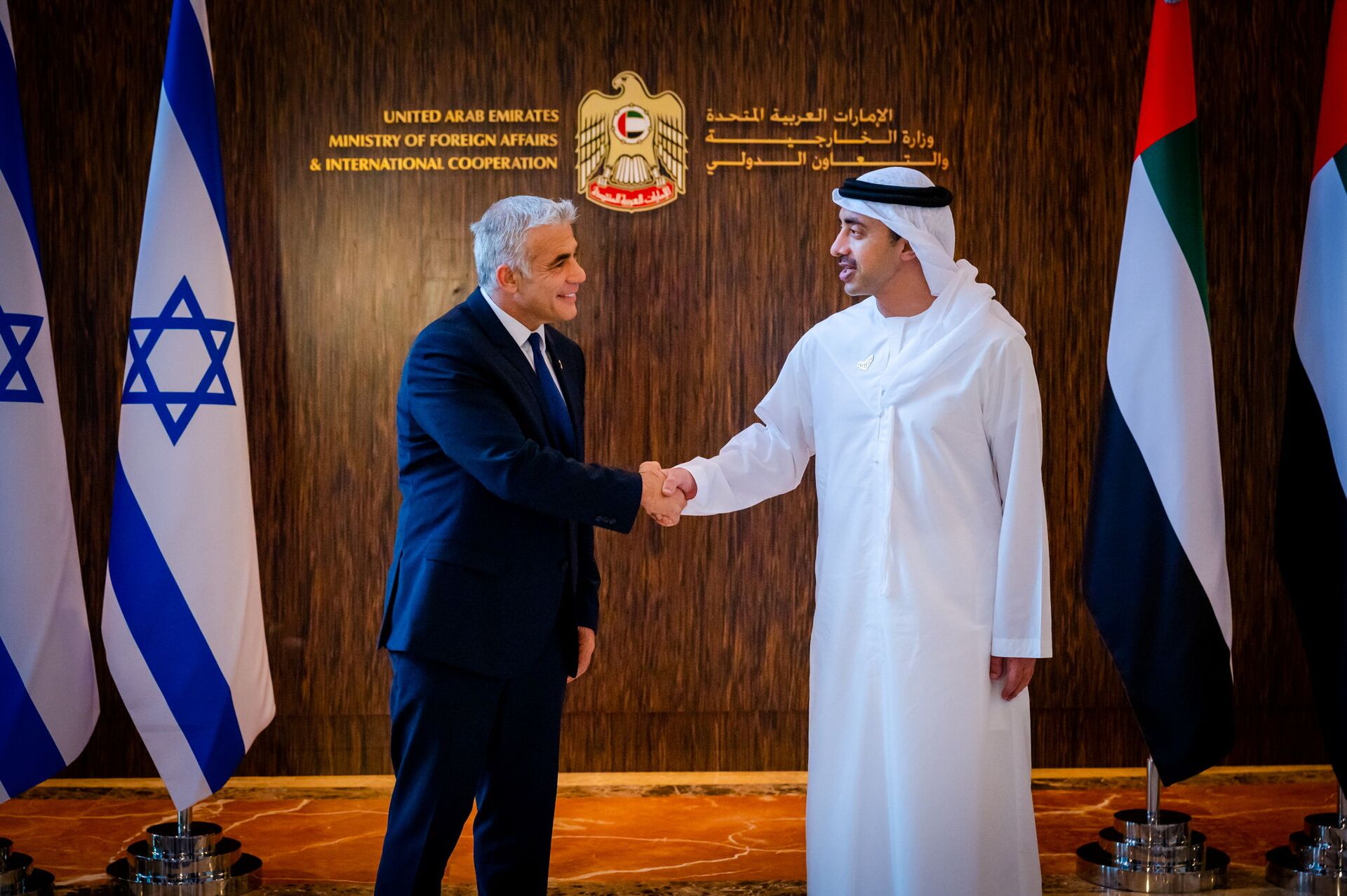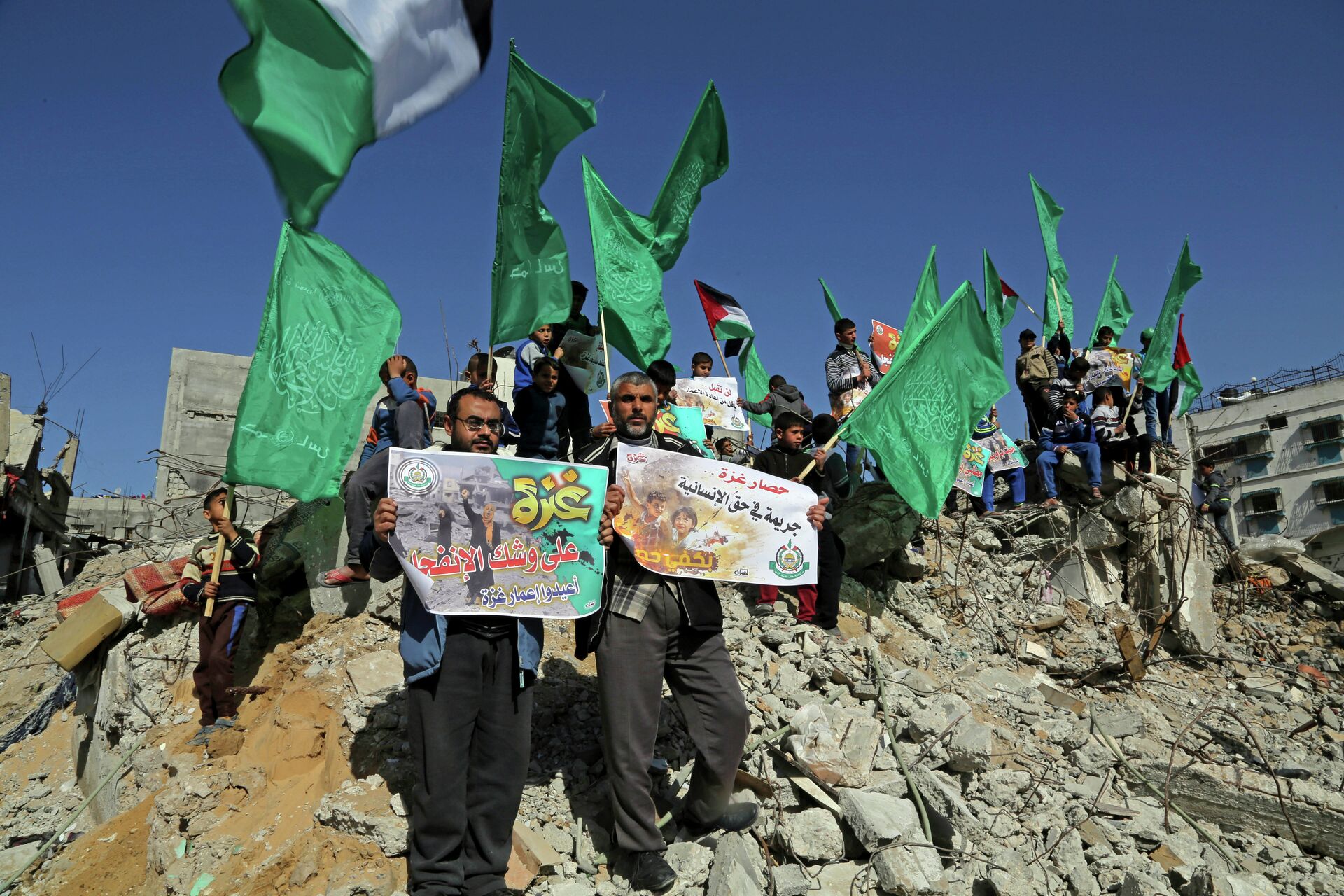Trade, Security, & Palestinians Expected to Top Israeli PM Bennett's Agenda During Visit to UAE
09:35 GMT 12.12.2021 (Updated: 17:24 GMT 15.01.2023)

© REUTERS / POOL
Subscribe
Israel's Prime Minister Naftali Bennett is expected in the United Arab Emirates' capital, Abu Dhabi, later on Sunday. It is the PM's first official visit to the Gulf nation, and it comes slightly more than a year after the signing of the Abraham Accords between the two nations.
The visit by the PM, who was invited by Crown Prince Mohammed bin Zayed al-Nahyan, was kept under wraps for fears of being cancelled, with the prime minister's office in Jerusalem only allowing the information to be released half an hour ago.
What will Bennett strive to achieve in the UAE, the third Muslim nation to recognise Israel? Here are the Israeli PM's three main goals.
Money Talks
Since the signing of the historic Abraham Accords in September 2020, Israel and the UAE have inked a number of important agreements ranging from banking and finance to education, medicine, and trade.

President Donald Trump, center, with from left, Bahrain Foreign Minister Khalid bin Ahmed Al Khalifa, Israeli Prime Minister Benjamin Netanyahu, Trump, and United Arab Emirates Foreign Minister Abdullah bin Zayed al-Nahyan, during the Abraham Accords signing ceremony on the South Lawn of the White House, Tuesday, Sept. 15, 2020, in Washington. (AP Photo/Alex Brandon)
© AP Photo / Alex Brandon
In fact, the latter has grown so much that in August it was reported that trade between the two nations topped $570 million, and the general feeling is that both players are interested in that number continuing to grow.
The countries have also announced that they are working on launching a free trade agreement, something that could get them closer to the target set by Emirati Minister of the Economy Abdulla Bin Touq Al Marri, who stated that the aim was "to create over a trillion dollars of economic activity with Israel".
Security as a Core Issue
A lot has been said about the motives that pushed the UAE to recognise Israel, and although Abu Dhabi has never confirmed it, one of the reasons for the historic pact was a common challenger -- Iran.
For years, Tehran has been accused of developing a nuclear bomb -- allegations that the Islamic Republic has repeatedly denied -- and officials in Abu Dhabi and Jerusalem were fearful that atomic energy could be used against their countries.
Most of the security and military cooperation between Israel and the UAE has been done clandestinely, far away from the watchful eyes of the media. But several deals and plans have already been revealed.
In March, Defence Minister Benny Gantz stated his country intended to develop a "special security arrangement" with a number of Gulf states, most likely referring to the UAE and Bahrain, another signatory to the Abraham Accords.

Israel's Foreign Minister Yair Lapid shakes hands with United Arab Emirates' Foreign Minister Sheikh Abdullah bin Zayed al-Nahyan in Abu Dhabi, UAE June 29, 2021.
© REUTERS / WAM
Months later, the two nations exchanged visits by top military commanders, and in November, the navies of Israel, the UAE, Bahrain, and the US joined forces in the Red Sea in their first exercise of that sort.
Visiting Abu Dhabi, Prime Minister Bennett will surely want to boost those ties, and he will also want to make sure that Israel's advanced technologies, including drones and satellites, are purchased by the rich Gulf nation.
Palestinians on the Map?
The Emirati leadership has repeatedly reiterated that it is committed to the Palestinian cause. But an Emirati source, who spoke to Sputnik on condition of anonymity, said that Abu Dhabi was extremely frustrated with the current Palestinian government headed by President Mahmoud Abbas.
Over the years, Abu Dhabi has invested billions of dollars in the Palestinian economy and multiple social and welfare programmes, but the Emirati authorities felt that large portions of the cash never reached ordinary citizens.

Palestinian Hamas supporters wave Hamas flags during a protest against the decision by the U.N. Relief and Works Agency to suspended an aid program for Gaza residents displaced by the last summer's war, in Beit Hanoun, northern Gaza. File photo
© AP Photo / Adel Hana
This was why in 2020, shortly after the normalisation pact was signed, the funds the UAE poured into the United Nations Relief and Works Agency were cut significantly, dropping from $50 million a year to only $1 million.
That move has since prompted the Palestinian leadership to try their luck elsewhere. Earlier this month, Abbas toured North African countries such as Tunisia and Algeria, where he raised funds for the Palestinian cause.
Similar attempts were also made in Qatar at the end of November, something that raised eyebrows in the UAE and Israel, who are wary of relations between the Palestinians and Doha, who has been known for their support for Hamas and other radical groups.
The initial idea was that Bennett would stay in the UAE for two days, visiting the city of Dubai as well, where he would probably attend the expo and meet with representatives of the Jewish community there. Now, however, as news has emerged about the spread of Omicron in Israel these plans are up in the air.


